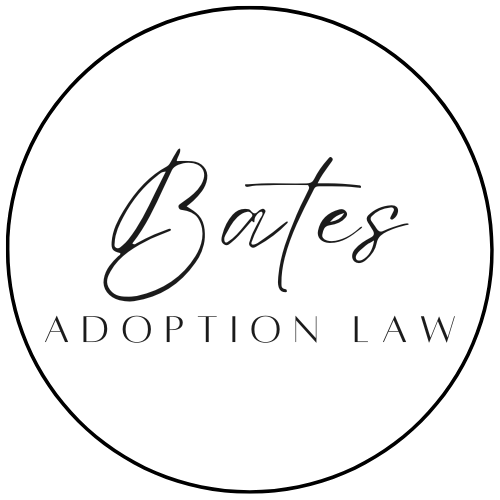What is Open Adoption?
At its very basic definition, open adoption essentially means that identifying information is exchanged between birth parent and adoptive parents.
As a broader principle, open adoption is an arrangement in which the birth parents and the adoptive parents maintain some level of contact and communication after the adoption is finalized. It is a collaborative approach that prioritizes the well-being and best interests of the child while acknowledging and respecting the ongoing connection between the birth parents and the child.
In an open adoption, the level of openness can vary and is typically agreed upon through discussions and negotiations between the birth parents and the adoptive parents, often facilitated by an adoption attorney. The terms of the open adoption can include sharing identifying information, such as names and contact details, regular updates through emails, texts, phone calls/video calls, and even occasional in-person visits.
Open adoption offers several benefits. It allows the child to maintain a connection with their birth family, providing them with a better understanding of their background and heritage. It can also help address questions and uncertainties that may arise as the child grows older regarding their identity and roots. Open adoption can contribute to a sense of security, belonging, and self-identity for the adopted child.
For birth parents, open adoption provides the opportunity to maintain a relationship with their child and stay informed about their well-being and development. It can help ease concerns about the child’s welfare and provide emotional reassurance. Open adoption may also allow birth parents to have a sense of closure and peace of mind, knowing that they made a loving and informed decision for their child.
Adoptive parents benefit from open adoption as well. They can establish a relationship with the birth parents, gaining insights into the child’s background and medical history. Open adoption often promotes transparency and trust, creating a supportive network for the child as they grow. It also provides adoptive parents with the opportunity to address any questions or curiosities the child may have about their adoption story in an open and honest manner.
It is important to note that open adoption arrangements can vary widely and depend on the preferences and comfort levels of all parties involved. It is crucial for all parties to establish clear boundaries and maintain open lines of communication. The best interests of the child should always be the primary consideration when deciding on the level of openness in an adoption arrangement.
Background and Reasoning for Open Adoption
The history of open adoption as a recognized and practiced approach to adoption is relatively recent. Traditionally, adoption was often characterized by secrecy and confidentiality, with limited or no contact between birth parents, adoptive parents, and the adopted child. This approach aimed to protect the privacy and anonymity of all parties involved.
In the mid-20th century, a shift began to occur in adoption practices and philosophies. This change was driven by several factors, including the growing recognition of the importance of a child’s identity and connection to their roots, increased awareness of the psychological and emotional needs of adopted individuals, and the advocacy efforts of birth parents seeking to maintain relationships with their children.
The rationale behind open adoption is grounded in the belief that it is beneficial for adoptees to have access to their birth family information, maintain a sense of connection to their origins, and have ongoing contact with their birth parents if it is in their best interests. The philosophy acknowledges that adoption does not erase a child’s biological ties and that preserving those connections can contribute to their overall well-being.
Open adoption aims to provide adoptees with a more comprehensive understanding of their identity, heritage, and family history. It recognizes that by maintaining relationships with birth parents, adoptees can develop a more complete sense of self and have their questions answered as they navigate through different life stages. Openness in adoption also acknowledges and respects the ongoing bond between birth parents and their child, allowing birth parents to play a continued role in the child's life, if desired and appropriate.
Benefits of Open Adoption
Research and studies have shown that open adoption can have positive outcomes for all parties involved. Adopted individuals who have knowledge of and access to their birth family history tend to have higher levels of self-esteem, better overall mental health, and a stronger sense of identity compared to those who have limited or no information about their origins. Open adoption can also reduce feelings of loss and help adoptees develop a healthier understanding of their adoption story.
For birth parents, open adoption offers an opportunity to maintain a connection with their child and alleviate concerns about their well-being. It allows birth parents to witness their child's growth and development, providing a sense of peace and assurance that they made a loving choice for their child's future.
Adoptive parents benefit from open adoption by gaining insights into the child’s background and medical history, facilitating open and honest conversations about adoption, and providing a supportive environment for the child's exploration of their identity.
